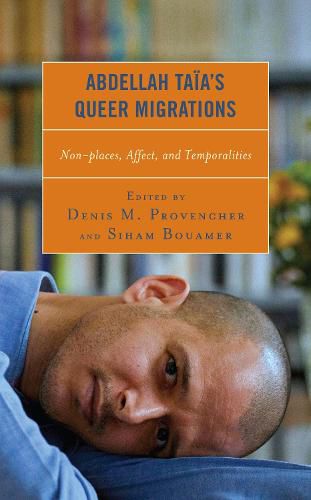Readings Newsletter
Become a Readings Member to make your shopping experience even easier.
Sign in or sign up for free!
You’re not far away from qualifying for FREE standard shipping within Australia
You’ve qualified for FREE standard shipping within Australia
The cart is loading…






In this first edited collection in English on the Moroccan author, Abdellah Taia’s Queer Migrations frames the distinctiveness of his migration by considering current scholarship in French and Francophone studies, post-colonial studies, affect theory, queer theory, and language and sexuality. In contrast to critics that consider Taia to immigrate and integrate successfully to France as a writer and intellectual, Provencher and Bouamer argue that the author’s writing is replete with elements of constant migration, comings and goings, cruel optimism, flexible accumulation of language over borders, transnational filiations, and new forms of belonging and memory making across time and space. At the same time, his constantly evolving identity emerges in many non-places, defined as liminal and border narrative spaces where unexpected and transgressive new forms of transgressive filial belonging emerge without completely shedding shame, mourning, or melancholy.
$9.00 standard shipping within Australia
FREE standard shipping within Australia for orders over $100.00
Express & International shipping calculated at checkout
In this first edited collection in English on the Moroccan author, Abdellah Taia’s Queer Migrations frames the distinctiveness of his migration by considering current scholarship in French and Francophone studies, post-colonial studies, affect theory, queer theory, and language and sexuality. In contrast to critics that consider Taia to immigrate and integrate successfully to France as a writer and intellectual, Provencher and Bouamer argue that the author’s writing is replete with elements of constant migration, comings and goings, cruel optimism, flexible accumulation of language over borders, transnational filiations, and new forms of belonging and memory making across time and space. At the same time, his constantly evolving identity emerges in many non-places, defined as liminal and border narrative spaces where unexpected and transgressive new forms of transgressive filial belonging emerge without completely shedding shame, mourning, or melancholy.